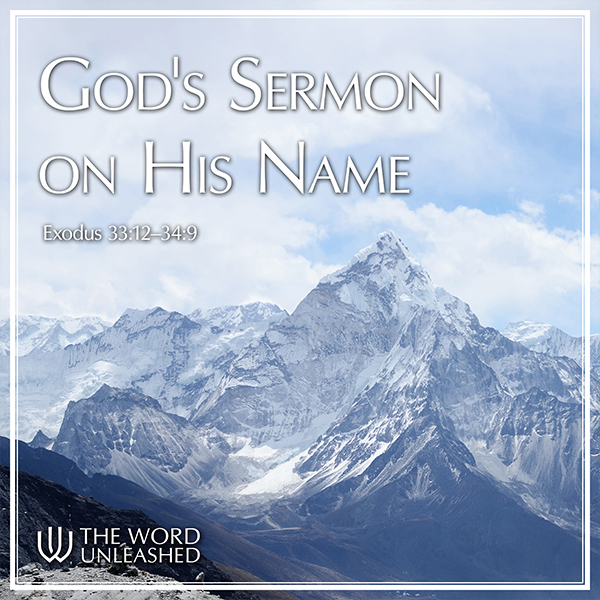
by Melinda Savoy | Mar 30, 2023 | God's Sermon on His Name
Exodus 33 provides a graphic illustration of the great chasm that exists between every sinner and God. Where there is sin there is always separation. This is a reminder that where there is unconfessed, unrepentant sin in our lives, there is a real separation between us and God, just as there was between the Israelites who lived in the camp and God who was outside the camp.

by Melinda Savoy | Mar 31, 2023 | God's Sermon on His Name
In light of the idolatry and sinfulness of God’s people while they worshiped the golden calf, Moses assumed a mediatorial role on behalf of the people to God. He humbly approached God and made three audacious requests, and God graciously responds to each one! The amazing reality is that we as Christians personally experience all three of God’s answers to Moses!

by Melinda Savoy | Apr 3, 2023 | God's Sermon on His Name
The essence of idolatry is to think of God as less than He is, and to consider Him as nothing more than a glorified human being. Your view of God is absolutely foundational to your life. In fact, the most important thing about you is what comes to your mind when you think of the God of the Bible. For us as believers, most of our failures in practical Christian living can be traced to inadequate and defective thoughts about God.

by Melinda Savoy | Apr 4, 2023 | God's Sermon on His Name
During the interaction between God and Moses after the golden-calf incident, God provides several glimpses into His own greatness—all of which put his amazing character on display for His people to see. He reveals that He is willing to interact with mankind, He reveals His own unique name, and He expresses that He has all power.

by Melinda Savoy | Apr 5, 2023 | God's Sermon on His Name
In the Garden of Eden Satan tempted Eve to believe that God was intentionally withholding something good from her. Unfortunately, Satan’s strategy worked and both Adam and Eve sinned. Attacking the goodness of God is still one of Satan’s most effective weapons. There are many Christians who live with a distorted view of God, born out of a misunderstanding of His goodness. But God’s self-revelation in Exodus 33–34 destroys all inadequate and idolatrous views of God.

by Melinda Savoy | Apr 6, 2023 | God's Sermon on His Name
During God’s interaction with Moses he describes two groups of people that exist in this world. The first group consists of those who love God, and they are described as guilty ones who have repented of their sins and sought His forgiveness—they are true believers. The second group consists of those who are guilty yet remain unrepentant. They refuse to turn from their sins and plead for His grace and forgiveness—they are unbelievers.

by Melinda Savoy | Apr 7, 2023 | God's Sermon on His Name
Our world and culture have flawed views of justice, especially as it relates to God. We as Christians must be careful not to allow these distorted views to be applied to the God of the Bible. God’s self-revelation in Exodus 34 destroys all inadequate, idolatrous views of God, especially those that promote wrong views of His justice.

by Melinda Savoy | Apr 10, 2023 | God's Sermon on His Name
In an exclusive event on Sinai after the atrocity of the golden calf, God revealed Himself to Moses. God made known certain attributes that brought attention to His unique character. This interaction shows that the only reasonable response to a glimpse of God and His self-revelation is to praise and worship God. Moses’ response to God provides a pattern for how we as Christians should respond to a glimpse of the glory of God in His Word.

Recent Comments